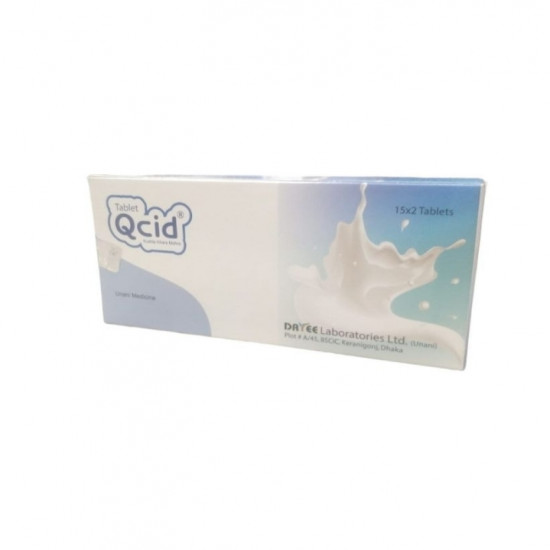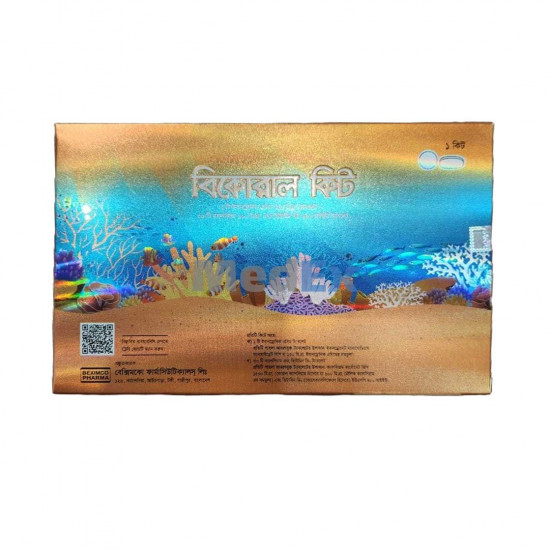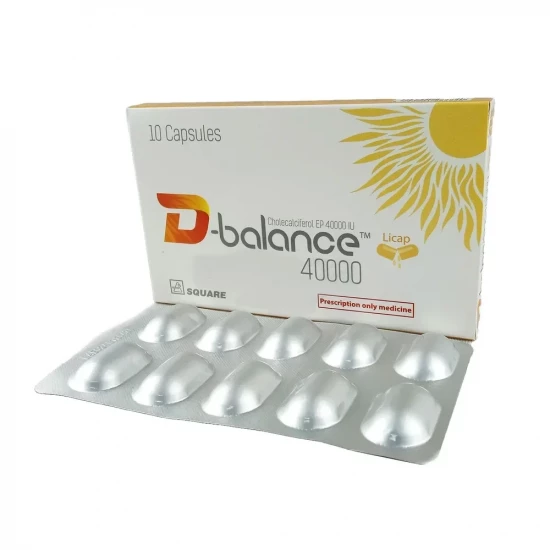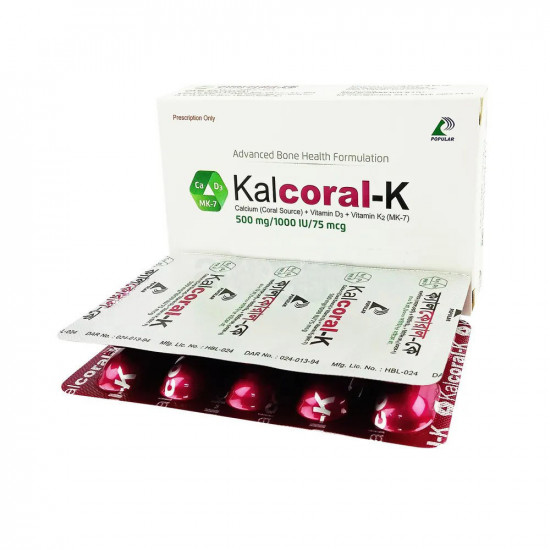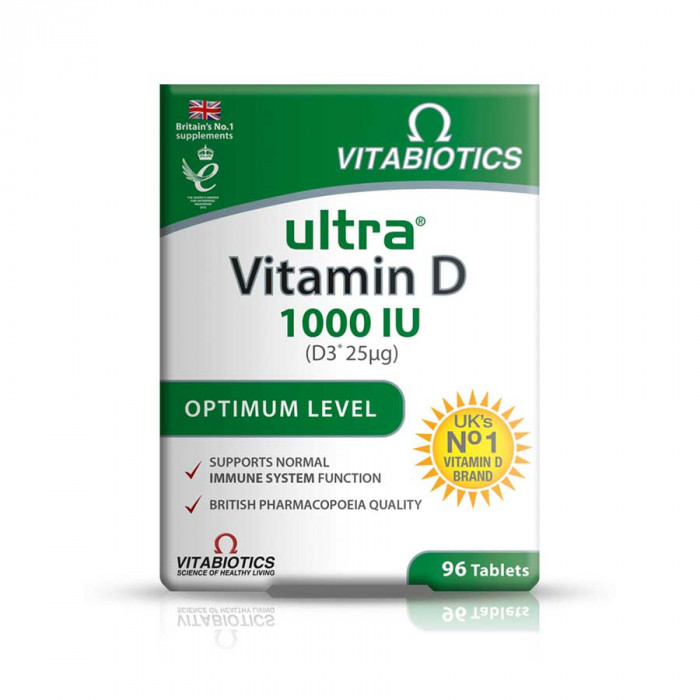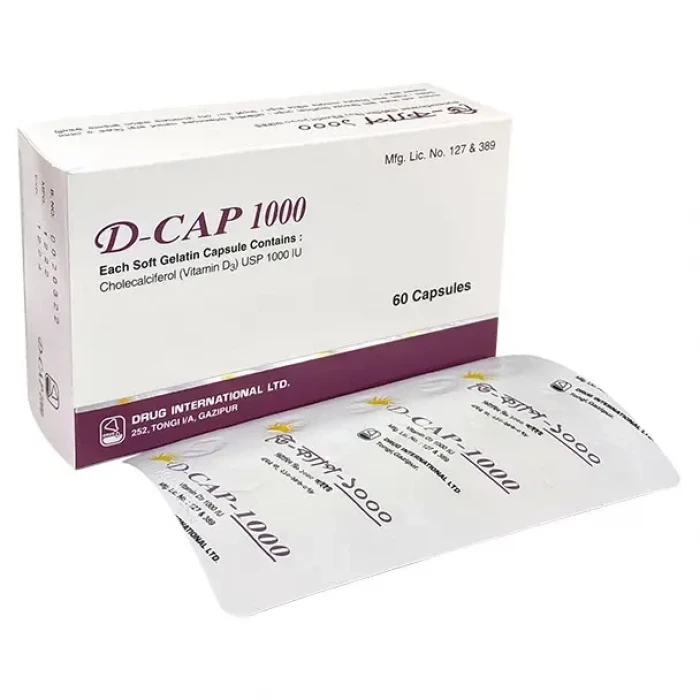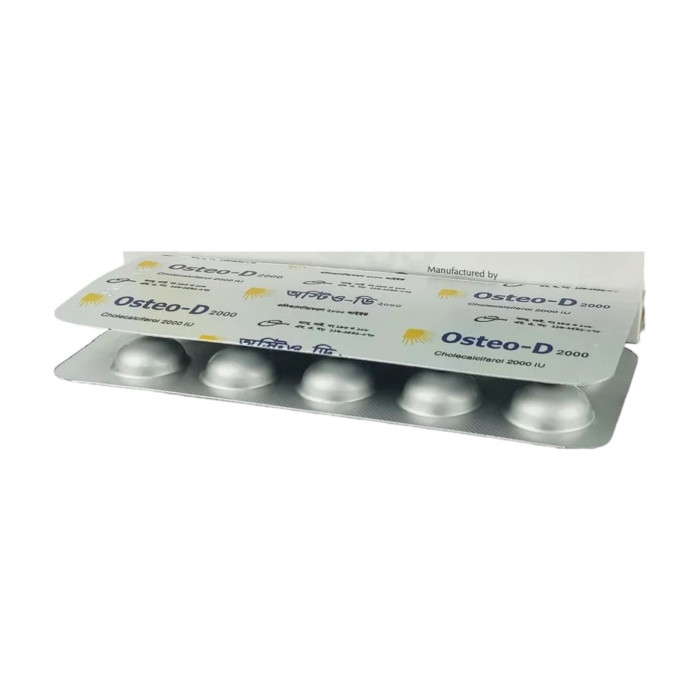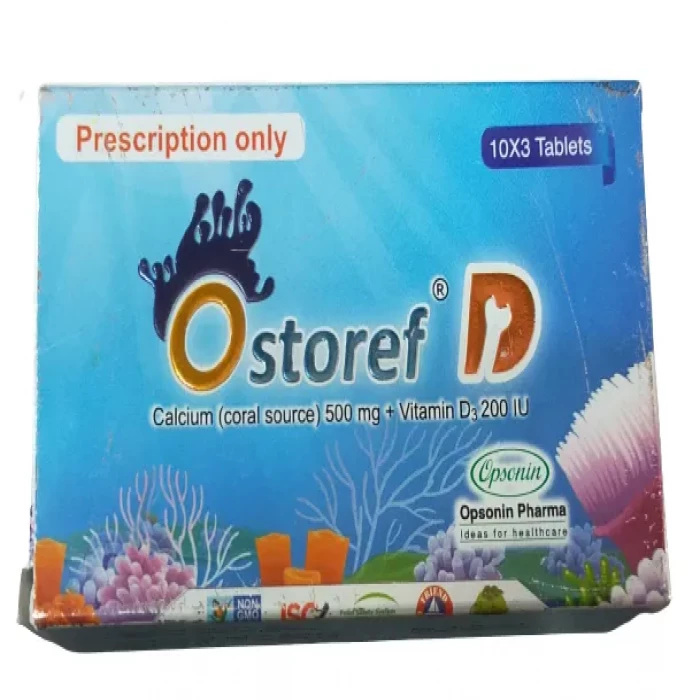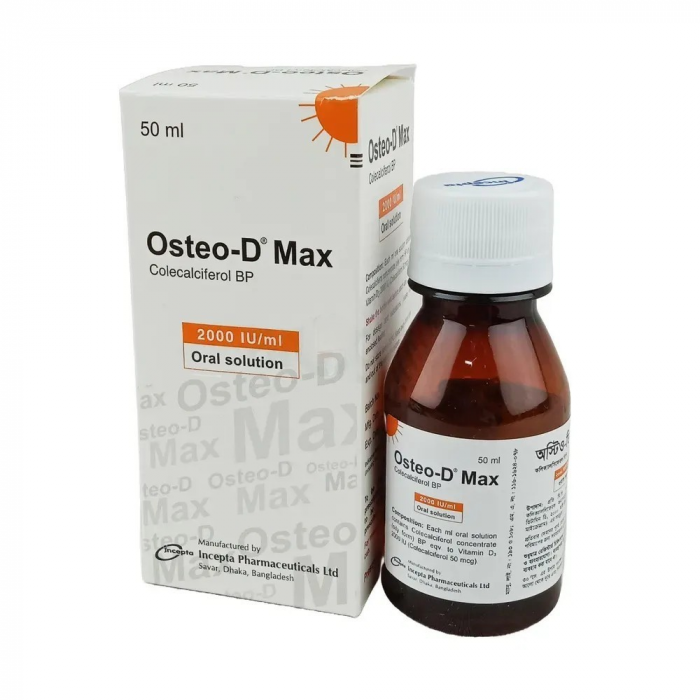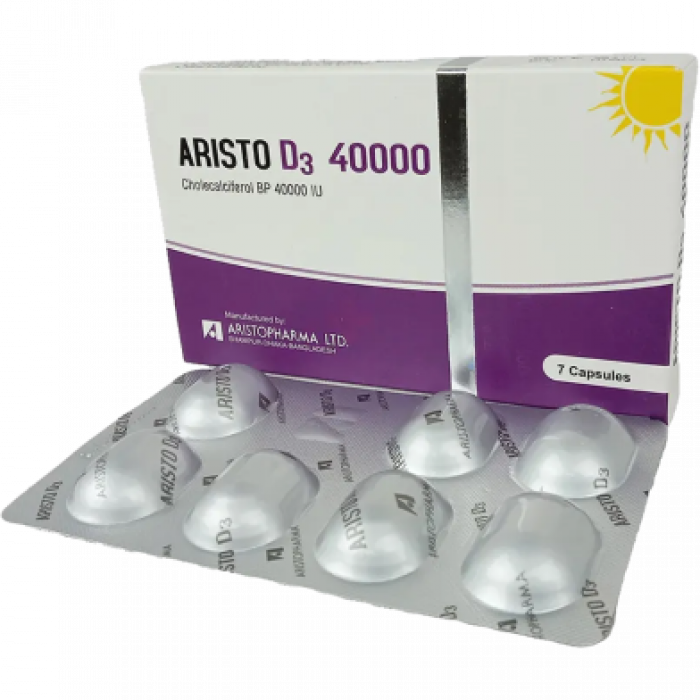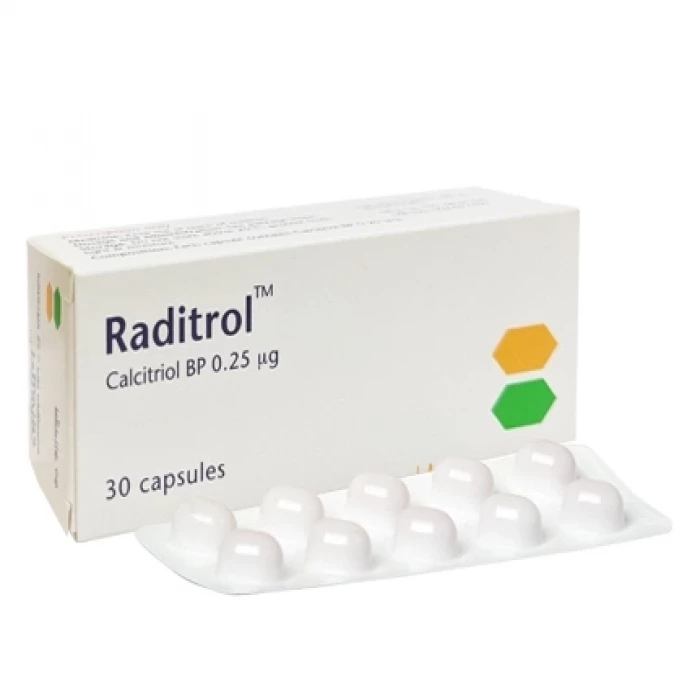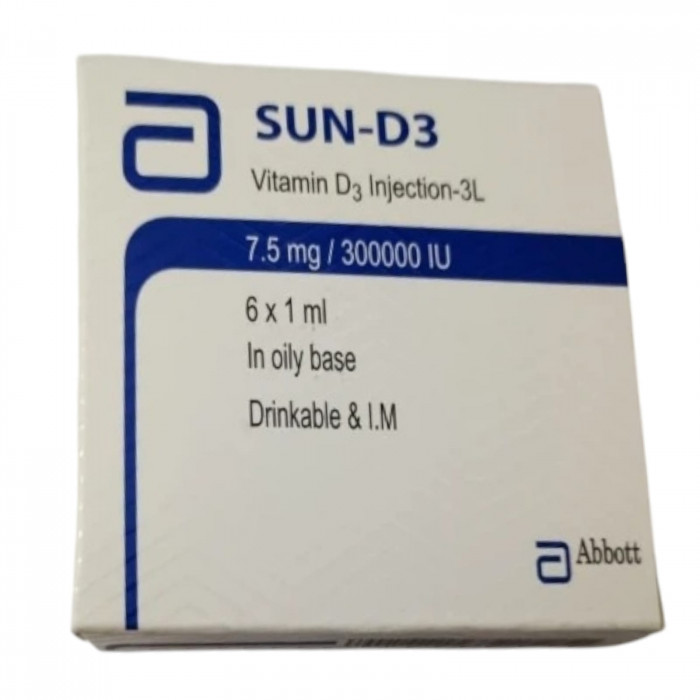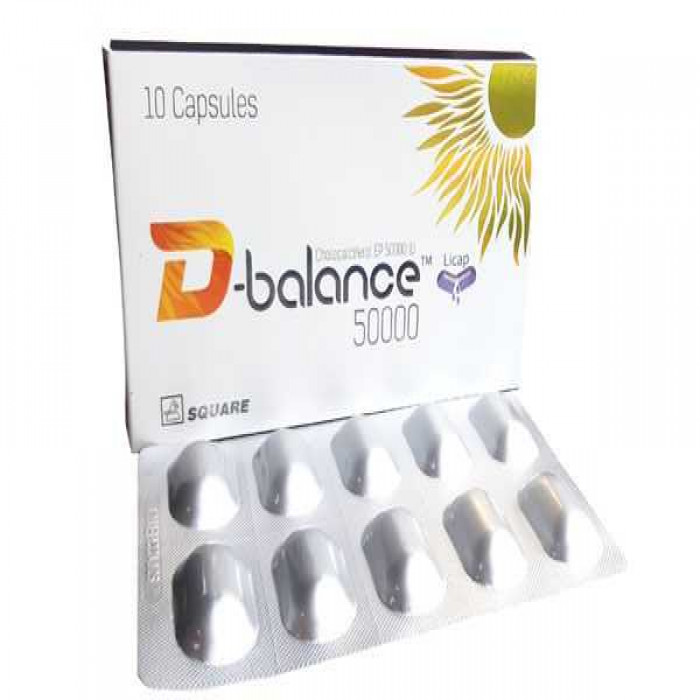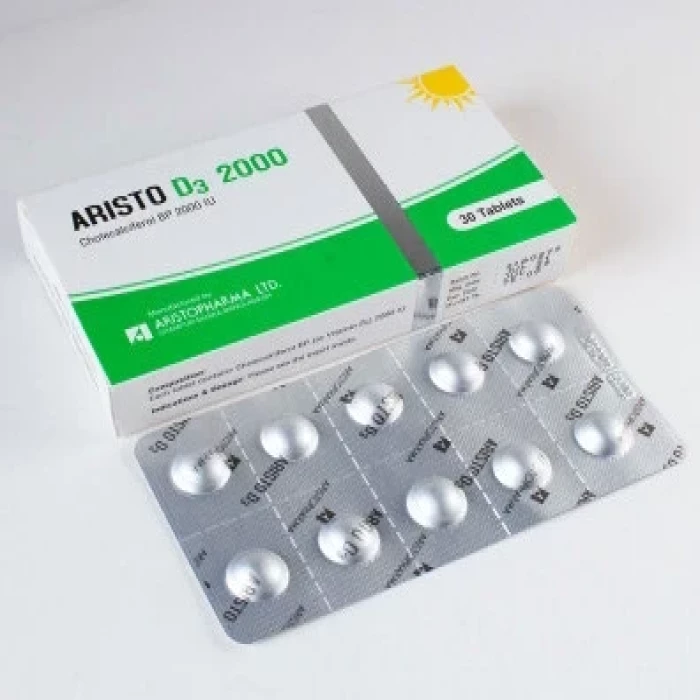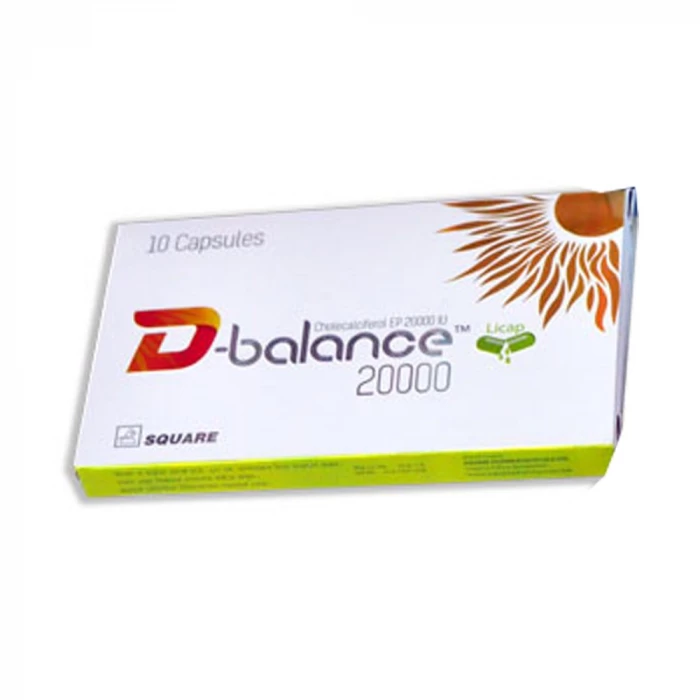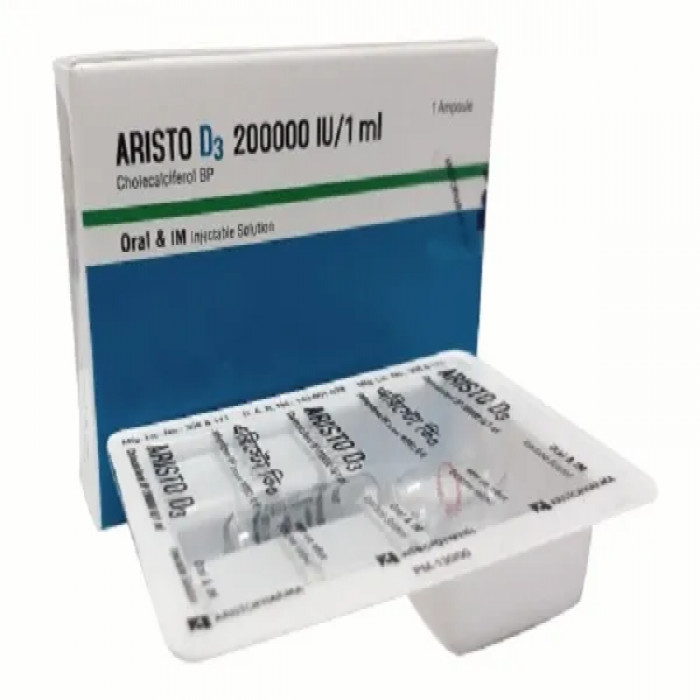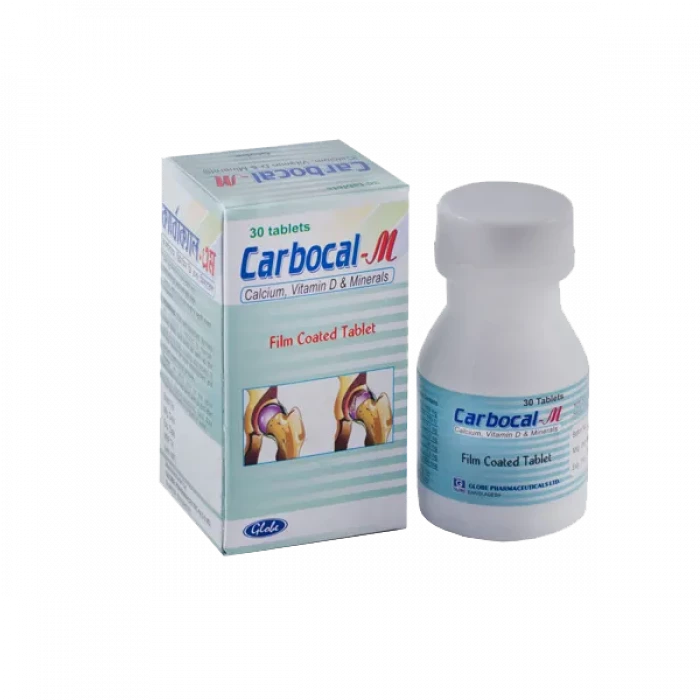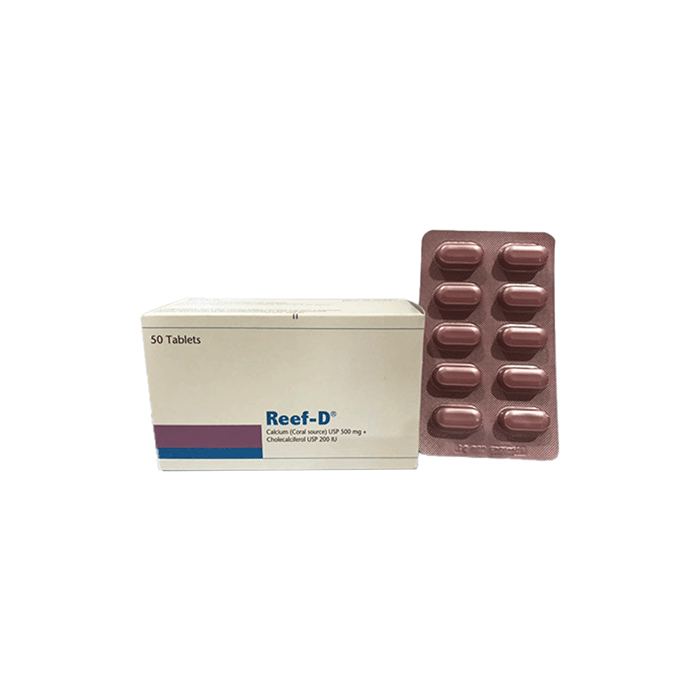
✔ 100% Authentic Product
👁️ Currently Viewing 3120
Reef-D 500mg+200IU Tablet 10pcs
Calcium Carbonate [Coral source] + Vitamin D3 is indicated for the treatment and prevention of:
- Osteoporosis
- Osteomalacia
- Tetany
- Hypoparathyroidism
- Disorders of osteogenesis
It is also used as a supplement in cases of inadequate intake of calcium in childhood diet, rickets, pregnancy, lactation, and among elderly patients. Other indications include pancreatitis and as a phosphate binder in chronic renal failure.
Discount
Price: ৳ 107
MRP:
৳
110
3%
Off

100% Genuine Products, Guaranteed

Safe & Secure Payments, Always

Fast, Secure & Efficient Delivery

Proper Packaging
 Cash on Delivery - All over Bangladesh
Cash on Delivery - All over Bangladesh Regular Delivery - 12-24 Hours, Dhaka City* Charge Tk.39-59
Regular Delivery - 12-24 Hours, Dhaka City* Charge Tk.39-59 Regular Delivery - 24-48 Hours, Other Cities* Charge Tk.99-110
Regular Delivery - 24-48 Hours, Other Cities* Charge Tk.99-110
 ফ্রি ডেলিভারিঃ - ৯৯৯ টাকা+ অর্ডারে, ঢাকা
শহরে
ফ্রি ডেলিভারিঃ - ৯৯৯ টাকা+ অর্ডারে, ঢাকা
শহরে ফ্রি ডেলিভারিঃ - ২৯৯৯ টাকা+ অর্ডারে, ঢাকার
বাহিরে
ফ্রি ডেলিভারিঃ - ২৯৯৯ টাকা+ অর্ডারে, ঢাকার
বাহিরে
100% Genuine Products, Guaranteed
Safe & Secure Payments, Always
Fast, Secure & Efficient Delivery
Proper Packaging
 Cash on Delivery - All over Bangladesh
Cash on Delivery - All over Bangladesh Regular Delivery - 12-24 Hours, Dhaka City* Charge Tk.39-59
Regular Delivery - 12-24 Hours, Dhaka City* Charge Tk.39-59 Regular Delivery - 24-48 Hours, Other Cities* Charge Tk.99-110
Regular Delivery - 24-48 Hours, Other Cities* Charge Tk.99-110 ফ্রি ডেলিভারিঃ - ৯৯৯ টাকা+ অর্ডারে, ঢাকা
শহরে
ফ্রি ডেলিভারিঃ - ৯৯৯ টাকা+ অর্ডারে, ঢাকা
শহরে ফ্রি ডেলিভারিঃ - ২৯৯৯ টাকা+ অর্ডারে, ঢাকার
বাহিরে
ফ্রি ডেলিভারিঃ - ২৯৯৯ টাকা+ অর্ডারে, ঢাকার
বাহিরে
✅ Description:
Composition
Each tablet contains:
- Calcium Carbonate USP 1250 mg (Coral source) equivalent to 500 mg of elemental Calcium & Vitamin D USP 200 IU. Each DX tablet contains:
- Calcium Carbonate USP 1500 mg (Coral source) equivalent to 600 mg of elemental Calcium & Vitamin D USP 400 IU. Each effervescent tablet contains:
- Calcium Carbonate (Coral source) USP 1500 mg equivalent to 600 mg of elemental Calcium and Vitamin D3 400 IU as Cholecalciferol USP.
Safety Advices

Alcohol
UNSAFE
Limit alcohol intake while using Reef-D as it can affect calcium absorption.

Pregnancy
CONSULT YOUR DOCTOR
During pregnancy, only use higher doses of Reef-D than the daily dietary allowance if advised by a doctor, as higher doses of calcitriol may harm the fetus..

Breastfeeding
CONSULT YOUR DOCTOR
Before taking Reef-D during breastfeeding, consult your doctor, as it can pass into breast milk. Monitor the mother and adjust the dosage accordingly.

Driving
No interaction was found/established.

Kidney
CONSULT YOUR DOCTOR
It is advised to seek a doctor's advice before starting Reef-D if you have kidney diseases like kidney stones or undergoing dialysis. Calcitriol in Reef-D increases inorganic phosphate levels in serum;

Liver
CONSULT YOUR DOCTOR
Inform your doctor of any history of liver diseases before taking Reef-D, as hepatic impairment can affect the activity of certain forms of Vitamin D
✔️ Pharmacology
Adequate calcium in the blood is vital to numerous bodily functions, and even short periods of deficiency can have significant effects. Calcium is essential for bone health and is useful in the prevention and treatment of osteoporosis and associated fractures. Vitamin D aids in calcium absorption from the GI tract and stimulates bone formation. Calcium carbonate sourced from coral origin ensures better absorption. Vitamin D3 aids in calcium absorption from the GI tract and helps maintain calcium balance in the body.
✔️ Side Effects of Reef-D
Common side effects include gastrointestinal irritation, constipation, allergic reactions, irregular heartbeats, nausea, vomiting, decreased appetite, dry mouth, and drowsiness. Vitamin D supplements may cause skin rash.
✔️ Dosage & Administration of Reef-D
One tablet once or twice daily with plenty of water or as directed by the physician. Taking on a full stomach ensures better absorption. Dissolve 1 effervescent tablet in a glass of water to drink orally. Stir the solution with a spoon before drinking. Taking on a full stomach ensures better absorption.
✔️ Overdose Effects of Reef-D
Overdose can lead to hypervitaminosis D and hypercalcemia, which may cause various symptoms including gastrointestinal distress, renal damage, and soft tissue calcification. Treatment involves discontinuing calcium treatment, rehydration, and other supportive measures as necessary.
✔️ Interaction
Thiazide diuretics reduce the urinary excretion of calcium. Systemic corticosteroids reduce calcium absorption. Simultaneous treatment with ion exchange resins or laxatives may reduce gastrointestinal absorption of vitamin D. Calcium carbonate may interfere with the absorption of tetracycline preparations. Hypercalcemia may increase the toxicity of cardiac glycosides. Patients taking bisphosphonates or sodium fluoride should take this medication at least three hours before the intake of calcium tablets. Oxalic acid and phytic acid found in certain foods may inhibit calcium absorption.
✔️ Contraindications
- Hypercalcemia and hyperparathyroidism
- Hypercalciuria and nephrolithiasis
- Hypersensitivity to the components
- Severe renal insufficiencies
- Concomitant digoxin therapy
✔️ Pregnancy & Lactation
During pregnancy and lactation, calcium and vitamin D intake should not exceed recommended levels. Overdoses of calcium and vitamin D should be avoided due to potential adverse effects on the developing fetus.
✔️ Key Benefits of Reef-D
- Calcium is an essential mineral for maintaining strong bones, and vitamin D3 helps the body absorb and utilize calcium effectively. Therefore, this supplement may support bone health and help manage conditions like osteoporosis
- Adequate calcium levels are important for proper muscle function and joint health. This supplement may contribute to maintaining healthy muscles and joints
- Calcium and vitamin D3 play various roles in the body, including nerve transmission, blood clotting, and immune function. By ensuring sufficient levels of these nutrients, Tata 1mg Calcium 500 mg & Vitamin D3 250 IU Tablet may contribute to overall well-being
✔️ Precautions & Warnings
Serum calcium levels and renal function should be monitored during long-term treatment. Patients with impaired renal function should use vitamin D with caution. Patients with sarcoidosis should be monitored for serum calcium levels and urinary calcium excretion. Immobilized patients with osteoporosis are at increased risk of hypercalcemia. The dose of vitamin D should be considered when prescribing other drugs containing vitamin D.
✔️ Storage Conditions
Store at temperatures below 30°C, protected from light and moisture, and keep out of reach of children.
⚠️Disclaimer:
At ePharma, we’re committed to providing accurate and accessible health information. However, all content is intended for informational purposes only and should not replace medical advice from a qualified physician. Please consult your healthcare provider for personalized guidance. We aim to support, not substitute, the doctor-patient relationship.




